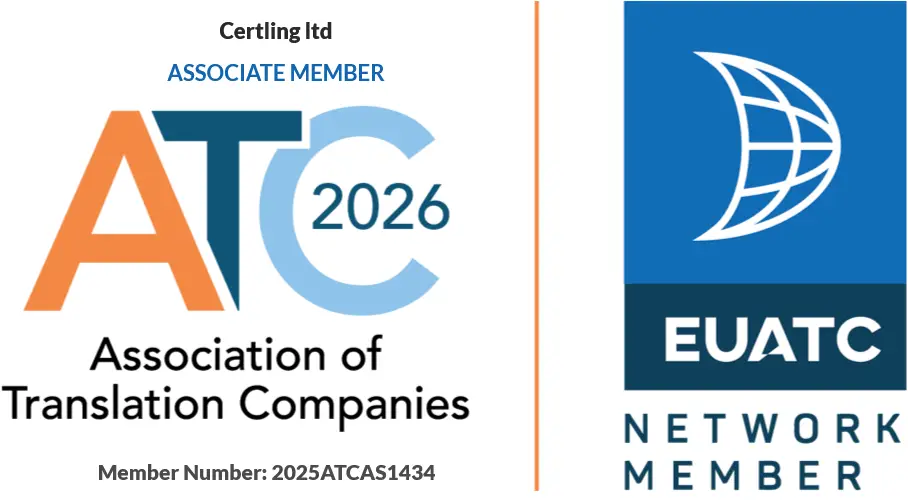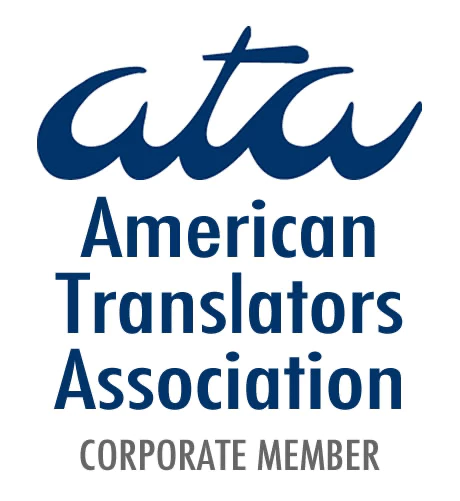UK Student Visa: Requirements, Regulations, and Certified Translations
Do I Need a Student Visa to Study in the UK?
If you're coming from outside the UK to pursue a full-time course, you will likely need a UK Student Visa. You can apply for a Student Visa if you're over 16 and have a confirmed place at a UK educational institution. To check if you need a visa, use the UK government's visa checker tool.
Requirements for a Study Visa in the UK
To get a UK Student Visa, you must meet the following requirements: - Confirmation of Acceptance for Studies (CAS): You’ll need a CAS from your UK educational institution, which confirms your course details. - Proof of Financial Means: You must show you can pay for your course and living expenses (More on this below). Documents like bank statements or scholarship letters must be provided. If these are in a language other than English or Welsh, Certling can assist with certified translations. - English Language Proficiency: Depending on your country of origin and course level, you may need to demonstrate your proficiency in English by taking a recognised language test. - Tuberculosis Test Results: If you are from a country where TB screening is required, you’ll need to submit test results.
For more on the requirements for a study visa in the UK, visit the official government page here.
UK Student Visa Processing Time
The standard processing time for a UK Student Visa is typically within three weeks. However, it is advisable to apply early, as delays may occur, especially during peak application times.
Key Changes to UK Student Visa Regulations (2023-2024)
Recent updates to the UK Student Visa system have changed the rules for dependants and work visa switching:
No Dependants for Most Students: Starting from January 1, 2024, international students enrolled in courses below a PhD or postgraduate research level can no longer bring their dependant partner or children to the UK. This change impacts students who begin their studies after this date.
Post-Study Work Visa UK: To switch to the Graduate Visa (also known as the Post-Study Work Visa UK), you must have completed your degree, and your dependants must have lived with you in the UK during your studies to apply for a dependant visa. Learn more about post-study options here.
Work Visa Transition Rules: Since July 17, 2023, students can no longer switch from a Student Visa to a work visa until after completing their course. For PhD students, a minimum of 24 months in the programme is required before they can switch to a work visa such as the Skilled Worker Visa.
For more details on these updates, check the government website here.
Using Financial Evidence from Your Parent(s) or Legal Guardian(s)
If you plan to use financial evidence from your parent(s) or legal guardian(s) as part of your Confirmation of Acceptance for Studies (CAS) and visa application, you must provide additional supporting documents.
You are required to submit your birth certificate or a court document confirming legal guardianship (an affidavit is not acceptable). If any original document is not in English, you must include a professional English translation.
Additionally, you must provide a letter from your parent(s) or legal guardian(s) confirming their willingness to fund your tuition fees, living expenses, or both. The letter must include the following details:
- Their full name(s)
- Their relationship to you
- The amount of money they are providing (which must be supported by their financial evidence or bank statement)
- A statement confirming their consent for the funds to be used for your education in the UK
You must also submit their financial evidence or bank statement, showing that the required funds have been held for at least 28 consecutive days.
Send a scanned copy or photograph of all documents by email to yourUniversity. Ensure that you keep the original documents for your visa application.
Example Sponsor Letter
Your sponsor may use the template below to create their letter by filling in the sections marked in italics.
[Your Sponsor’s Address]
[Street]
[City]
[Country]
[Date]
To: Entry Clearance Officer, British Embassy
Subject: Financial Support for [Student’s Name]
Dear Sir/Madam,
I, [Parent(s) Name], confirm that I am the [mother/father] of [Student’s Name] and that I will financially support my [son/daughter] during their studies in the UK. They are enrolled in [Course Title and Degree Type] at Robert Gordon University.
I am happy to provide financial support amounting to [Amount in Currency on Bank Statement]. This is evidenced by my enclosed bank statements. I give my full consent for these funds to be available to my [son/daughter] for their studies in the UK.
Yours faithfully,
[Sponsor’s Signature]
[Sponsor’s Name]
Certified Translations for UK Student Visa Applications
If any of your documents, such as financial statements or birth certificates, are in a language other than English or Welsh, you must submit a certified translation. Certling offers certified translation services to ensure that your documents meet UK Visas and Immigration (UKVI) requirements.
Applying for a UK Student Visa can be a smooth process as long as you meet the eligibility requirements and provide all necessary documents, including certified translations. For more detailed information and official guidelines, visit the UK government’s Student Visa page.
Frequently Asked Questions - Student Visa
Answers to common questions about UK Student visas, based on recent trends and seasonal enquiries. For personal advice, we recommend contacting your university’s visa support team.

